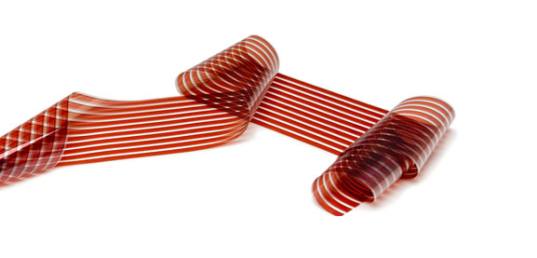
Victorian researchers have welcomed a $5 million grant from the State Government to help commercialize their revolutionary technology that uses printable light-sensitive ink to convert sunlight into energy, potentially opening the door to inexpensive, mass produced solar panels.
The grant recognises the viability of this new technology and will help the team transform their laboratory work into a commercial product for the public.
“The new generation organic solar cell ink has been proven to work, the next step is to make the technology commercially available,” Dr Jones said.
“This will involve testing the efficiency and durability of it – this is what the funding will be used for,” he said.
The team will now concentrate on developing large scale print runs to deliver efficient devices that last for a long time.
Solar electricity is a well-recognised, environmentally friendly energy source but in the past its use has been restricted by the expensive and brittle nature of the materials required to make solar panels, as well as the associated energy-intensive manufacture process.
Dr Jones said the implementation of environmentally-friendly power, such as solar electricity, is becoming increasingly important for Australia as we strive to meet current and future carbon dioxide reduction targets.
“The aim is to make solar cells so affordable for consumers, it’s a logical choice to use solar energy rather than green-house gas producing and unsustainable forms of energy” he said.
The researchers and industry partners’ ultimate goal is to have a commercial product available within the next five years. The team expects the new solar cells to drastically increase the use of solar electricity in Australia as the cost of producing solar panels will significantly decrease, making the technology more accessible.
The grant forms part of Victoria’s Science Agenda Strategic Project Fund and was announced by Innovation Minister, Gavin Jennings at the annual OzBio2010 Conference’s Public Forum.
Researchers from the University of Melbourne , CSIRO and Monash University, teamed up with industry partners including BlueScope Steel, Securency International, Innovia Films and Robert Bosch South East Asia to form the Victorian Organic Solar Cell Consortium (VICOSC).
Dr David Jones from the Bio21 Institute at the University of Melbourne and Program Coordinator at VICOSC said the technology has the potential to revolutionize the energy industry and will bring Victoria one step closer to achieving a sustainable future.



